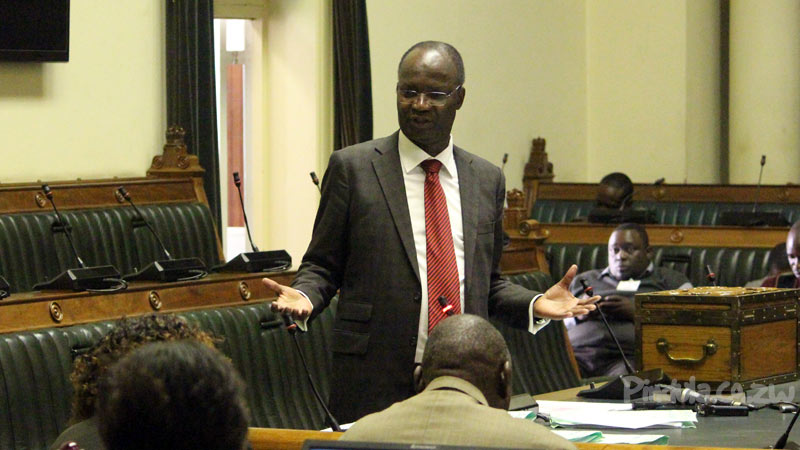JONATHAN NATHANIEL MOYO
(1) SERGEANT CHACHA (2) THE ZIMBABWE ANTI-CORRUPTION COMMISSION (3) THE COMMISSIONER GENERAL OF POLICE, ZIMBABWE REPUBLIC POLICE (4) THE PROSECUTOR-GENERAL
CONSTITUTIONAL COURT OF ZIMBABWE MALABA CJ, GWAUNZA JCC, GARWE JCC, GOWORA JCC, HLATSHWAYO JCC, PATEL JCC, GUVAVA JCC, UCHENA JCC & ZIYAMBI AJCC HARARE, JUNE 14 & SEPTEMBER 20, 2017
L Uriri, for the applicant
V Munyoro, for the first and second respondents
No appearance for the third respondent
T Magwaliba, for the fourth respondent
MALABA CJ: The applicant approached the Constitutional Court alleging that his right to personal liberty has been infringed by the first respondent, a police officer on secondment to the second respondent (hereinafter referred to as “ZACC”). The applicant asserts that the first
The challenge to the validity of the warrants for search and seizure in this Court is also misplaced. The law relating to warrants of search and seizure is not contained in its details in the Constitution. The applicant correctly pointed out the sections of the Act which govern the validity of warrants of search and seizure obtained by ZACC. A dispute as regards the lawfulness or otherwise of such warrants does not require the interpretation and application of the Constitution. It requires the interpretation of the Act itself. It does not require the Constitutional Court to determine the issue.
The applicant challenged the lawfulness of the arrest on the basis that the fourth respondent directed the third respondent to arrest him.
This still goes to the challenge of the lawfulness of his arrest, which can be addressed in the Magistrate’s Court. A further difficulty with this point is the way that the applicant has pleaded this issue. He alleged that the fourth respondent directed the third respondent to arrest him. He then avers that he was not arrested by the third respondent or an officer under the third respondent. Instead he takes the view that the first respondent was a member of ZACC and could not have acted under the direction of the third respondent while on secondment. According to the applicant, the arrest was effected by the first respondent under the direction of ZACC.
Whatever view the applicant takes of the relationship between ZACC and the first respondent, the question of what s 13 of the Act, as read with s 1 of the Schedule to the Act, means would need to be determined. The Magistrate’s Court would have to answer the question whether the statutory provision means that ZACC can have a person arrested whom it reasonably suspects of having committed an offence falling within its jurisdiction by a police officer who forms his or her own reasonable suspicion of the person having committed the offence. Would such action by ZACC and the police officer concerned not produce a lawful arrest? There would be no constitutional matter to attract the exercise of jurisdiction by the Constitutional Court.
There is no proper legal basis on which the applicant approached the Constitutional Court.
In the result. it is ordered that the application be and is hereby dismissed with no order as
to costs.
GWAUNZA JCC: I agree
GARWE JCC: I agree
GOWORA JCC: I agree
HLATSHWAYO JCC: I agree
PATEL JCC: I agree
GUVAVA JCC: I agree
UCHENA JCC: I agree
ZIYAMBI A JCC: I agree
Hussein, Ranchod and Company, applicant’s legal practitioners
Civil Division of the Attorney General’s Office, for the first and second respondents National Prosecuting Authority, for the fourth respondent



Back to top